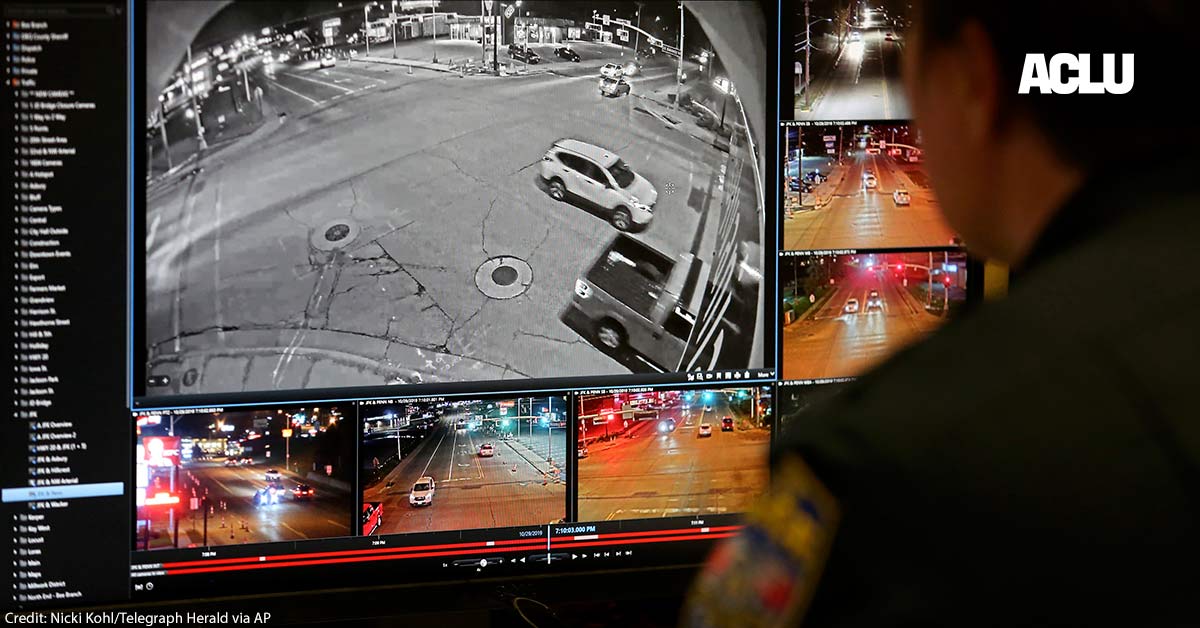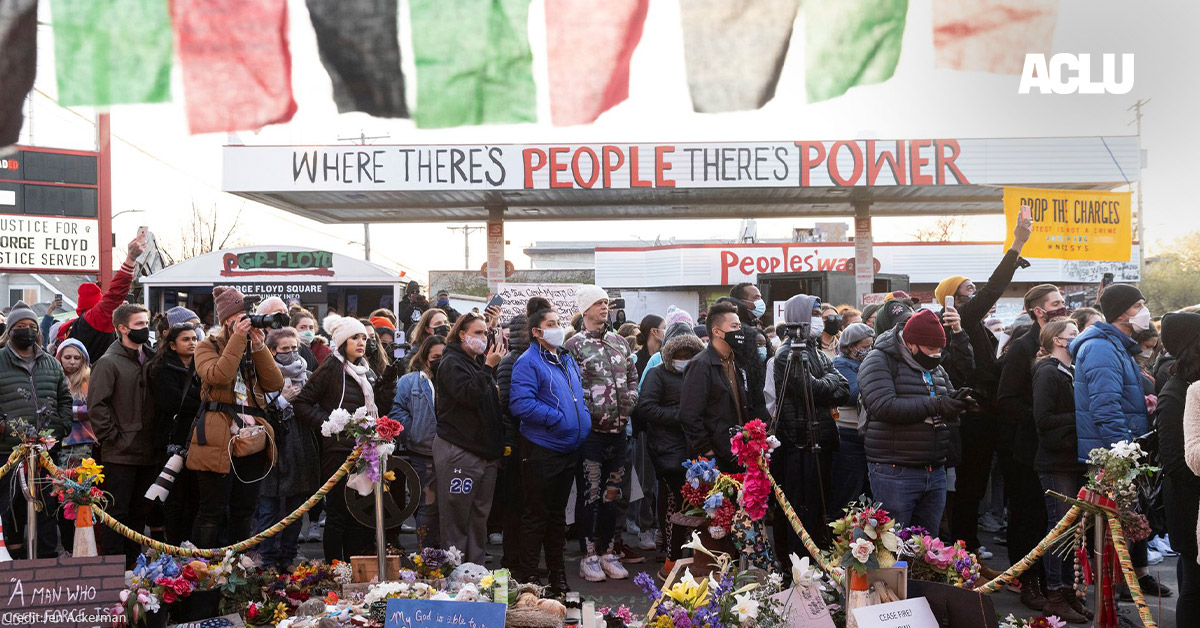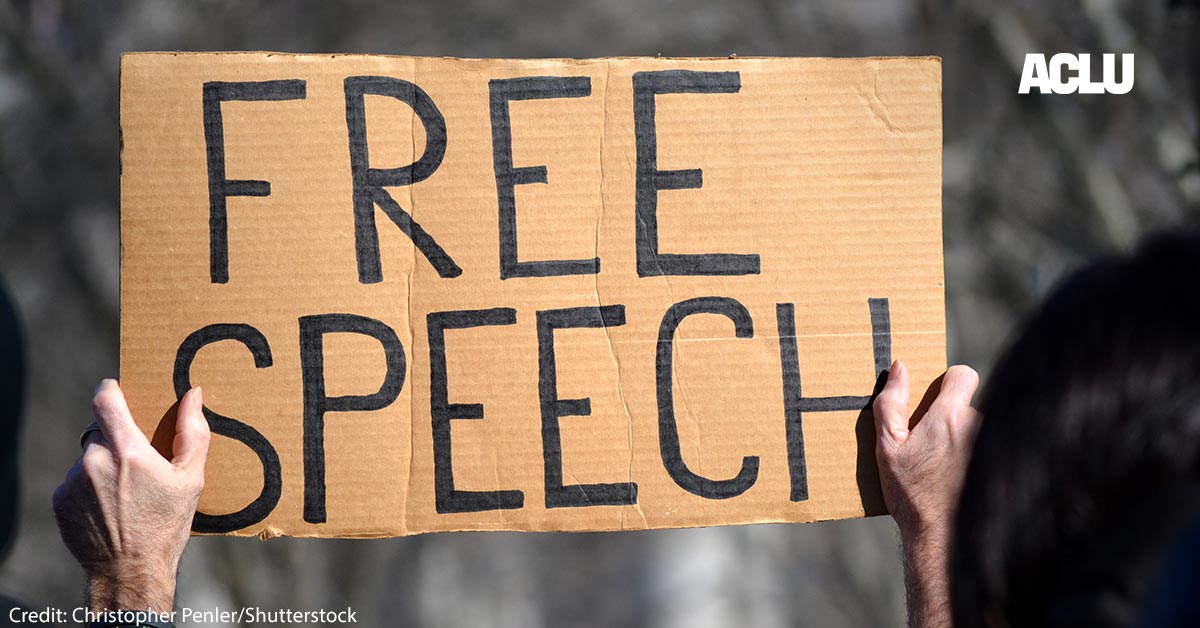By Chad Marlow, National ACLU Senior Policy Counsel
Four and a half years ago, the use of surveillance technologies by local police and governments was growing exponentially. There were many factors behind this rapid growth, but the two most significant were (1) the ever-increasing pool of federal grant money that was being made available for surveillance tech purchases, and (2) that in almost every jurisdiction, local police were empowered to make decisions about acquiring and using surveillance technologies unilaterally and in secret. Because it is hard to oppose a specific local surveillance tech acquisition when you don’t know it’s happening, surveillance tech use by local police was turning into a runaway train.
While this trend was worrisome enough unto itself, another inescapable fact made it even more troubling: Namely, while police and government surveillance negatively impacts everyone, it does not impact everyone equally. Specifically, dating all the way back to New York City’s pre-revolutionary lantern laws, surveillance — like policing itself — has been used to disproportionately target people of color.
These realities raised a challenging question: If the ACLU was going to seek to disrupt the growing use of surveillance technologies on the local level, what would a new approach look like? Put another way, if we were going to take decisions about acquiring and using surveillance technologies out of the hands of the police, who then should be empowered to decide if and how surveillance technologies are used and how would the new model work?
Surveillance — like policing itself — has been used to disproportionately target people of color.
The most just and equitable answer to that question is that the people and communities most impacted by surveillance should have the greatest influence over surveillance technology decisions.
Having arrived at that answer, the next question was how we could most effectively empower local communities to influence surveillance technology decisions. Having local communities vote on every proposed surveillance technology acquisition presented the most direct route to such empowerment, but such frequent ballot measures would be expensive, cumbersome, and open to manipulation by those who formulated the ballot language. The next best approach, which the ACLU arrived at after examining and building upon some innovative legislation from Santa Clara County, California and seeking advice from 17 national partner organizations, was to pursue local legislation that would shift the existing, secretive acquisition processes into one that is transparent and driven by community opinion.
Specifically, this new, transparent process would require that (1) the public be provided with substantial, detailed information about a proposed surveillance technology and how it is proposed to be used well before any funding, acquisition, and deployment decisions are made, (2) the public is given ample opportunity to form opinions, organize, and express those positions in public hearings before their local elected representatives, and (3) those democratically accountable elected officials — most often city councilmembers — would replace the police in having the final say on if and how surveillance technologies are used, knowing that if they take a position contrary to that of their constituents, it could cost them their jobs. While this approach was imperfect in the same way democracy is imperfect, it offered a powerful platform from which the people could question, limit, and even reject the local use of surveillance technologies. And that is how the Community Control Over Police Surveillance (CCOPS) effort was born.
Today, we celebrate the adoption of our 20th and 21st CCOPS laws by the cities of Dayton and Detroit. This milestone was achieved by passing CCOPS laws at an astounding rate of one new law every 2.67 months. As a result, more than 17 million residents, along with countless visitors and undocumented persons, now have a meaningful say over, and real opportunity to reject, the use of intrusive surveillance technologies.
This achievement could not be more important as the ACLU, its members, and our allies embark on the fight for systemic equality in 2021 and beyond. Systemic equality does not permit around-the-clock monitoring of communities of color, so their residents feel like they live in open air prisons. Systemic equality does not accept the massive surveilling of communities of color so minor infractions, which would go largely unnoticed in whiter communities, regularly result in police interventions. Systemic equality does not permit faulty technologies, like facial recognition and predictive policing, to drive the false arrest and imprisonment of Black and Brown people, because doing so is considered acceptable (or even intended) collateral damage in the fight against crime. Finally, systemic equality rejects the disproven narrative that surveillance technologies prevent people from becoming crime victims when, in fact, it regularly victimizes persons of color.
More than 17 million people now have a meaningful say over the use of intrusive surveillance technologies.
In places where CCOPS laws exist and government surveillance tech secrecy has given way to transparency, impacted communities now have a meaningful chance to debate and push back against the deployment of surveillance technologies. (Most CCOPS laws, per the ACLU model bill, require existing techs to get council approval or have their use discontinued.) In some cases, as with San Francisco’s ban on government facial recognition, CCOPS laws have chosen to reject certain surveillance techs at their inception. We have even noticed police internally rejecting the use of a surveillance technology because they knew the blowback during a CCOPS review would be overwhelming. Such important protections should extend beyond those who live in one of CCOPS’ 21 jurisdictions.
We may have a long way to go before CCOPS laws protect every or even a majority of persons in America, but we are off to a strong start. Whereas CCOPS bills were once sold as a new approach to local surveillance oversight and community empowerment, they are now recognized as the prevailing gold standard. And while we once had to explain what CCOPS was and even how it’s acronym is pronounced (it’s see-cops), CCOPS has now been the subject of articles detailing how its laws are formulated and have spread, how we can most effectively center racial justice considerations during the CCOPS review process, and how the CCOPS campaign itself was developed and operates. By design, the CCOPS effort is decentralized, so over the years we have seen successful CCOPS efforts led by the ACLU and our affiliates, local CCOPS coalitions, and by local activists who discovered the CCOPS website’s resources and ran with them to victory.
At this milestone moment, we pause to celebrate our achievements and all those who help us reach them. After some COVID-appropriate high fives, however, we will turn our thoughts back to those who are not yet protected by CCOPS laws. CCOPS has come a long way, but there’s still a long way to go. Time to get back to work.


